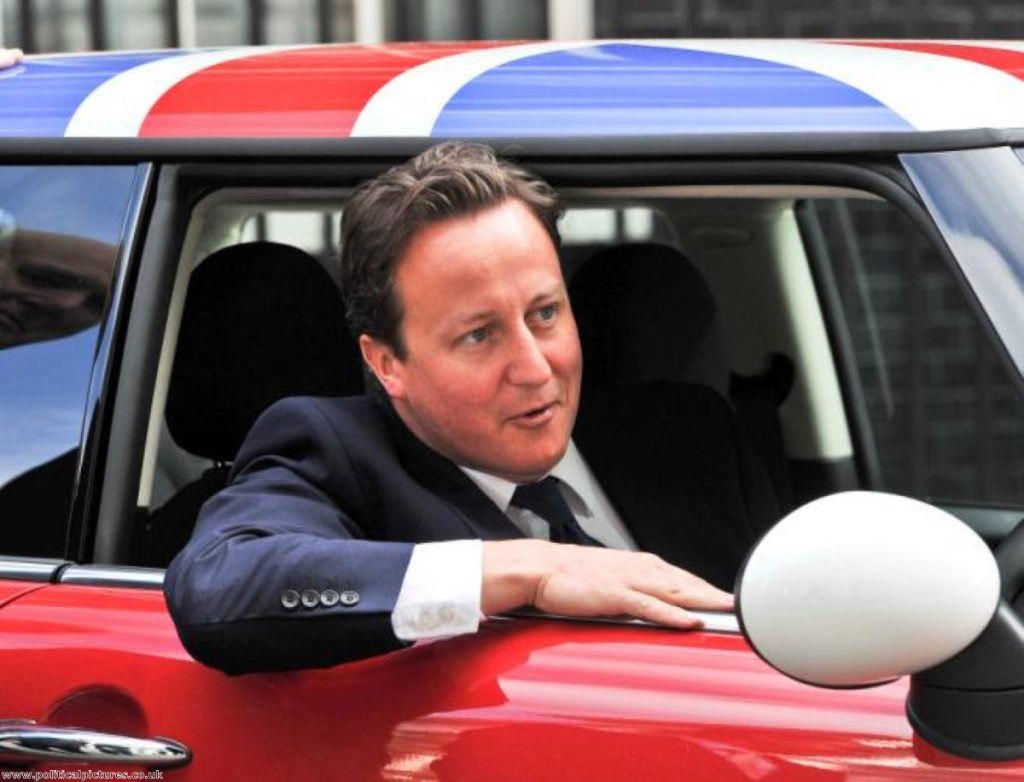Cameron’s EU negotiations: How to spot if he’s doing a good job
David Cameron's refusal to say precisely what he wants to get from European negotiations makes it a little difficult to evaluate how successful he will be. It's in Cameron's interests for the public to be kept in the dark about what he wants and how he'll try and get it. After all, the less we know, the easier it is for him to claim any negotiation – no matter how humiliating – has been a success.
But even without a clear indication of what the UK wants, there are still tell-tale signs of how well he's doing in the EU bearpit.
The first comes as early as next week, when EU leaders meet in Brussels to once again try and hammer out an agreement on the EU budget. "The talks are not likely to lead to agreement but it's conceivable they will," Stephen Tindale, associate fellow at the Centre for European Reform, says. "Either a freeze or a real terms cut would be an early sign of how much negotiating success Cameron can have in Europe."
The government will also wants some concrete action on 'habitual residency' before the door opens to immigrants from Romania and Bulgaria at the end of 2013. The European court of justice has allowed greater and greater rights for EU citizens moving within its borders but the government wants restrictions on what newcomers to the UK can claim from the state. Other wealthy EU countries, like Germany and France, share the UK's concerns, so there could be movement here.


The next goalpost comes halfway through 2014, when the UK has the chance to assert its independence in crime and justice policy. Currently, the UK enjoys an opt-out on a Lisbon treaty stipulation that all future crime and policing matters come under the jurisdiction of the European court of justice. By the end of 2014, the UK must decide whether to stick with the current arrangements, sign up or use their block opt-out and try to then opt-in to individual measures it finds tolerable. Theresa May confirmed she would take this final option in October last year, when she told the Commons she wanted to opt-out of all pre-Lisbon police and criminal justice measures and then negotiate with the Commission and other member states to sign up to the individual measures she likes.
The tabloid press would be hugely impressed if it sees traction in this area."This touches on issues like Britain's ability to deport people it doesn't want," Christopher Howarth, senior political analyst at Open Europe, says. "There are areas where Britain can get agreement which would reduce some of the things the British public doesn't like." The government would be aiming for movement on the European arrest warrant, the Schengen Information System and the role of EU agencies such as Europol andEurojust. But it shouldn't hold its breath, Tindale suggests. "The assumption the coalition has is that they can pick and chose from that package," he says. "If they want to opt back in to, say, the European arrest warrant, they think they'll be able to do so. But that's not at all clear from the noises coming from other member states."
Sometime after 2015, if Cameron wins the next election (a big if) the negotiations on the repatriation of powers will begin. We only have two clues about Cameron's priorities, both of which will be galling to centrists and left-wingers: The working time directive and the environment. These are the only two areas of policy Cameron specifically cited in an otherwise elusive description.
Working time is a very familiar Tory complaint and it would be unusual if it didn't feature at all. However, there is a major obstacle to British success: France. The French consider the working time directive a key rule preventing 'social dumping' in the single market, Without it, they warn, we are all in a race to the bottom as low wages and long working hours attract investment and eventually trigger a fall in living standards across the continent.
"It's unlikely, particularly as they're not exactly enamoured of the UK government at the moment, that they'd agree to change the working time directive or allow the UK to opt out," Tindale says.
Cameron's pledge to secure a UK opt-out on environmental regulations raised a few eyebrows, not least because he had once pledged to make the coalition the 'greenest government ever'. It all hinges on what Cameron considers 'environmental'. This could just refer to wildlife and related matters, or it could include climate change. Under the balance of competencies statement, energy is separate, but climate change and the environment are together. That will send shivers up the spine of green activists.
This could centre on regulations around new coal and gas stations. Under EU regulations no new coal stations are allowed without carbon capture and storage technology, but new gas stations are. Cameron's mention of the environment suggests he envisages a new dash for gas in the near future. "Whether there'll be attempt to roll back what the EU is doing on greenhouse gas emissions is going to be a pretty big issues politically," Tindale says.
Beyond the specifics, there was a general thrust to Cameron's speech which is far more important than any of its specific parts. He wants proof that powers can be handed back to member states instead of an ever-increasing union. It is this specific cultural change – evidence that it's not just a one-way street – which will matter more than any individual accomplishment. It will take more than an odd policy area here or there to demonstrate that. That's the big test and it's still unclear whether he can deliver.












